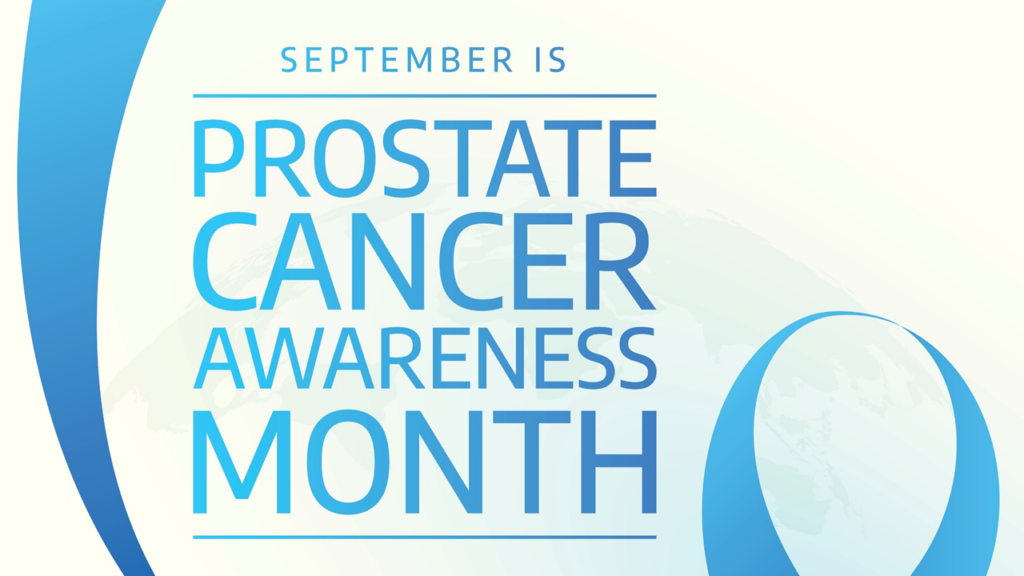This September marks Prostate Cancer Awareness Month 2024, an opportunity to raise awareness about the disease and promote early detection. Prostate cancer is the second most common new cancer diagnosis and a leading cause of cancer death in men, with about 299,010 new cases and 35,250 deaths expected this year in the US.
With a 97.5 percent five-year relative survival rate observed between 2014 and 2020, early screening and effective treatment remain key in improving outcomes.
The Critical Importance of Early Detection
Prostate cancer begins in the prostate, a small gland that plays a vital role in male reproduction by producing seminal fluid. Most prostate cancers grow slowly, but some can be aggressive, spreading quickly to other parts of the body.
Prostate cancer often shows no symptoms in its early stages, which makes early detection critical. Common screening methods include the prostate-specific antigen (PSA) test and the digital rectal exam (DRE). However, there is no standard screening test, and both options have potential risks and benefits.
PSA levels can be high due to non-cancerous reasons, leading to false positives and unnecessary tests. A biopsy may be needed to confirm cancer, which carries risks such as pain and infection. In many cases, slow-growing cancers may never cause serious health issues, and unnecessary treatment can lead to significant side effects like impotence and bladder control issues.
Before deciding, men should discuss with their healthcare provider whether screening is right for them based on factors such as age, family history and race.
XTALKS WEBINAR: How Decentralized and Rapid NGS Testing Can Overcome Challenges in Oncology Trials
Live and On-Demand: Friday, October 25, 2024, at 1pm EDT (10am PDT)
Register for this free webinar to gain insights into key considerations when managing oncology biomarker-driven trials and more.
Potential New Treatments for Prostate Cancer on the Horizon
The last decade has seen incredible advancements in the treatment and diagnosis of prostate cancer. Let’s look at some of these innovations bound for improving patient outcomes and providing new hope for those facing this disease.
Xtandi for Non-Metastatic Prostate Cancer
In late 2023, Pfizer and Astellas’ Xtandi (enzalutamide) received the US Food and Drug Administration (FDA) approval for use in non-metastatic castration-sensitive prostate cancer (nmCSPC) patients. The Phase III EMBARK trial demonstrated Xtandi’s ability to delay metastasis in patients at high risk of recurrence, offering a promising option for men with biochemical recurrence, which is increased levels of PSA in the blood.
Pluvicto: New Approaches to Advanced Prostate Cancer
Novartis’ Pluvicto (lutetium [177Lu] vipivotide tetraxetan), a prostate-specific membrane antigen (PSMA)-targeted radioligand therapy, continues to show potential. In patients with metastatic castration-resistant prostate cancer (mCRPC), Pluvicto has been shown to significantly extend progression-free survival, providing a potential alternative for those who have exhausted traditional treatments, according to shared data from the Phase III PSMAfore trial.
Combining Cabozantinib and Atezolizumab
Combination therapies, such as cabozantinib with atezolizumab, are also emerging as potential options for treating advanced cases of prostate cancer. The Phase III CONTACT-02 trial conducted by Exelixis demonstrated reduced disease progression in patients with mCRPC by 35 percent, further expanding the treatment landscape for patients with advanced, treatment-resistant prostate cancer.
Vir Biotechnology’s PSMA-Targeted Therapy
Vir Biotechnology — who entered a new licensing agreement with Sanofi this month — secured exclusive rights to a clinical-stage dual-masked PSMA-targeted T-cell engager (SAR446329) for mCRPC patients. SAR446329 uses Vir’s proprietary PRO-XTEN masking platform which activates T-cell engagers in the tumor microenvironment, reducing off-target effects and enhancing safety. Although still in early clinical trials, this immunotherapy approach could represent a significant advance for patients with limited treatment options.
Oral ADT Treatment: A New Option for Hormone-Sensitive Prostate Cancer
In August 2024, the National Institute for Health and Care Excellence (NICE) recommended Orgovyx (relugolix) as the first oral androgen deprivation therapy (ADT) for men with hormone-sensitive prostate cancer in England. This decision offers patients a new, flexible, non-injectable option for those undergoing radiotherapy or as neoadjuvant treatment for high-risk localized prostate cancer to manage their condition.
Make an Impact on Prostate Cancer Awareness Month 2024
Ongoing research and clinical trials are bringing the medical community closer to more effective treatments. Novartis for example, is also focusing on expanding the use of radioligand therapies like Pluvicto into earlier stages of prostate cancer treatment, with trials like PSMAddition and PSMA-DC exploring its benefits in hormone-sensitive and oligometastatic settings.
Prostate Cancer Awareness Month is a time to act. Whether it’s promoting early detection, supporting clinical trials, or simply spreading the word about prostate cancer, every effort boosts awareness against this prevalent disease.
Here’s how you can make a difference:
- Get Screened: Men over 50 or at higher risk should talk to their doctor about PSA or DRE screening.
- Spread the Word: Use social media to raise awareness about prostate cancer, encouraging others to prioritize their health.
- Support Research: Consider donating to organizations like the Prostate Cancer Foundation or finding support at ZERO Prostate Cancer.
- Participate in Events: Many cities host charity events during September. Get involved in local and national fundraising initiatives.
- Advocate for Change: Reach out to policymakers to push for improved access to healthcare and increased funding for cancer research.












Join or login to leave a comment
JOIN LOGIN